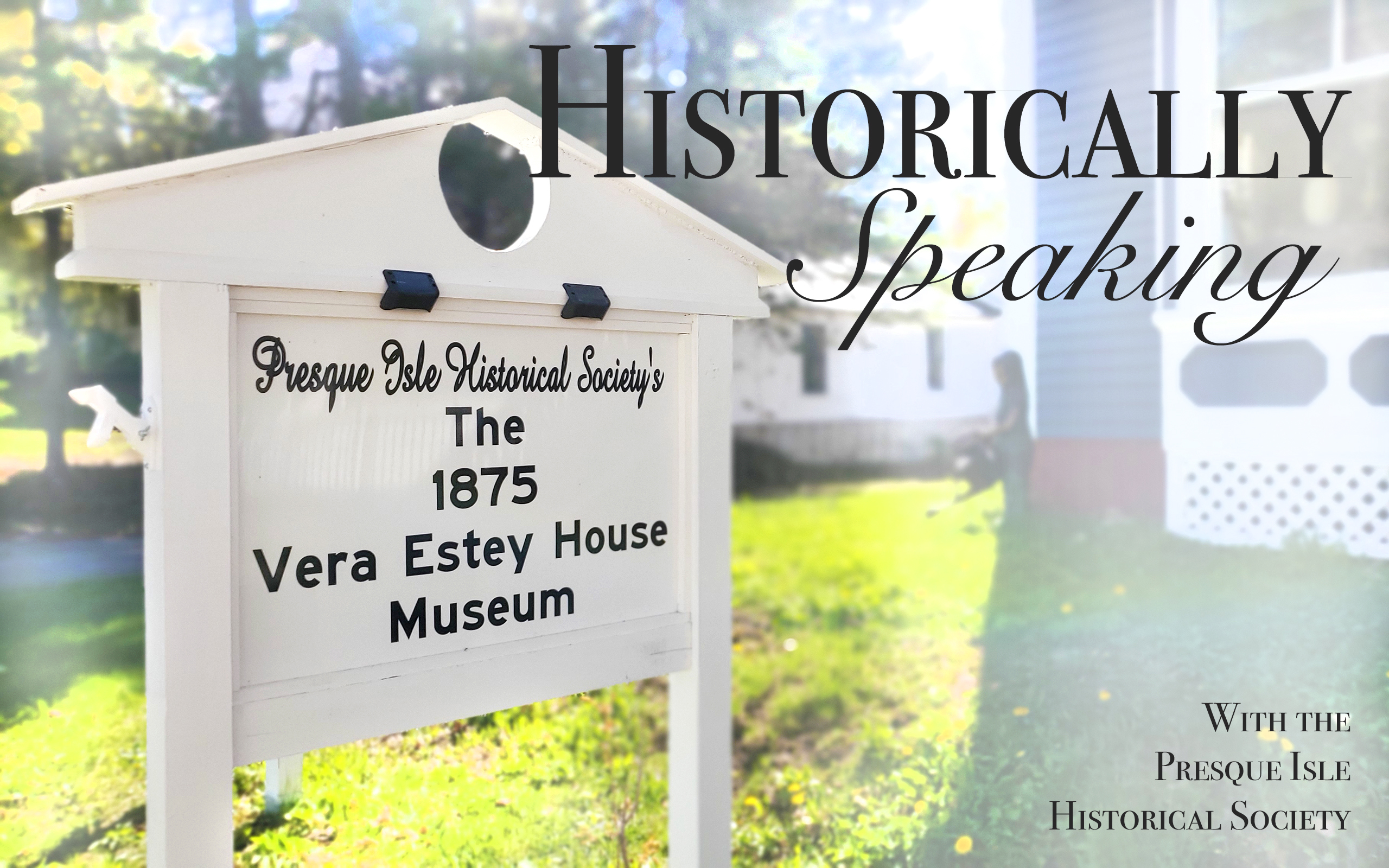In 1915, a dinner was held by Elisha Parkhurst at his grand home on the corner of Church and Third streets (which still stands today) in Presque Isle to which he invited nine old friends.
The gentlemen present, all “older,” determined that they were the remaining founders or pioneers of this community. The men dubbed themselves “The Pioneer Club.” All of the members were significant contributors to the history of our area.
Elisha Parkhurst moved to this area in 1857 and, in 1858, purchased 320 acres in Maysville for farming. For 25 years, he was one of the largest shippers of potatoes in Aroostook County. In addition, he was credited by the U.S. Department of Agriculture with the invention of the potato sprayer. Parkhurst’s farm sat on the Parkhurst Road, now known as the Brewer Road. He is also the namesake of Parkhurst Siding Road. Parkhurst was a Mason, a trustee of the Northern Aroostook Agricultural Society (better known today as the Northern Maine Fair), served in both the Maine House and Senate, served on the Maine State Board of Agriculture, and was one of three original members of the Maysville Grange.
Friends present included: Sidney Cook, Eli Dennett, Hiram Forbes, Columbus Hayford, Reverend George Park, George Parsons, Simon Porter, George Whidden and Sumner Whitney.
Sidney Cook served as Presque Isle’s fire chief from 1897 to 1899 and built the Nathan Perry Steamboat.
Eli Dennett was a Civil War veteran and served as a town selectman for two years.
Hiram Forbes was a well-known and respected stagecoach driver and owned a local livery stable.
Columbus Hayford was a Civil War veteran, one of three original members of the Maysville Grange, and was a Mason. In addition, he served in the Maine House of Representatives, on the Maine State Board of Agriculture, and as a Presque Isle selectman for 10 years.
Reverend George Park was the pastor of what is now State Street Baptist Church and played a major role in the establishment of the Normal School. The Normal School was also known as the Aroostook State Teachers’ College and ultimately became the University of Maine at Presque Isle. Park Hall on the UMPI campus was named in his honor.
George Parsons had a 200-acre farm on the Parsons Road known as Elmbrook. The 1959 National Christmas Tree came from this farm, which at the time was owned by his granddaughter, Alice Kimball. Parsons served as a secretary of the Northern Aroostook Agricultural Society. At one time, the barn on his farm was listed in the National Register of Historic Places.
Simon Porter owned a business on the five-way intersection at State and Mechanic Streets.
George Whidden was a Civil War veteran and cabinet maker. Whidden served on the school board and in the Maine House of Representatives. He also served as a deputy sheriff, tax collector, town clerk, and town selectman. Whidden was a justice of the peace for 40 years.
Sumner Whitney was a farmer, philanthropist, mill man, hotel keeper and real estate mogul (buying up most of the property owned by Dennis Fairbanks, the founder of our community when he left town in 1846). Whitney was a charter member of the Trinity Lodge of Freemasons and served in the Maine State Senate. He also furnished the lumber to build the first bridge to span the stream on State Street, gave the town land for school purposes, donated the land where the Congregational Church sits today, and gave the land on the corner of State and Third for the town’s first municipal building.
Reverend Park’s hall tree and Sumner Whitney’s trunk are currently on display at Presque Isle Historical Society’s 1875 Vera Estey House Museum.
Kimberly R. Smith is the secretary/treasurer of the Presque Isle Historical Society.








